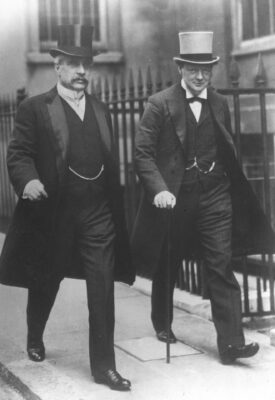Canada and the Legacy of Vimy Ridge
“The same indomitable spirit which made [Canada] capable of that effort and sacrifice made her equally incapable of accepting at the Peace Conference, in the League of Nations, or elsewhere, a status inferior to that accorded to nations less advanced in their development, less amply endowed in wealth, resources, and population, no more complete in their sovereignty, and far less conspicuous in their sacrifices.”
-Sir Robert Borden
In 1919, Allied leaders and diplomats came together in Paris to negotiate a long-lasting peace. The peace treaty was, for the most part, written by the “Big Four”: leaders from the UK, France, the United States, and, on and off, Italy. These leaders were joined weekly by the plenary conference, wherein other, smaller nations, including Canada, could give input. Germany was not invited.

